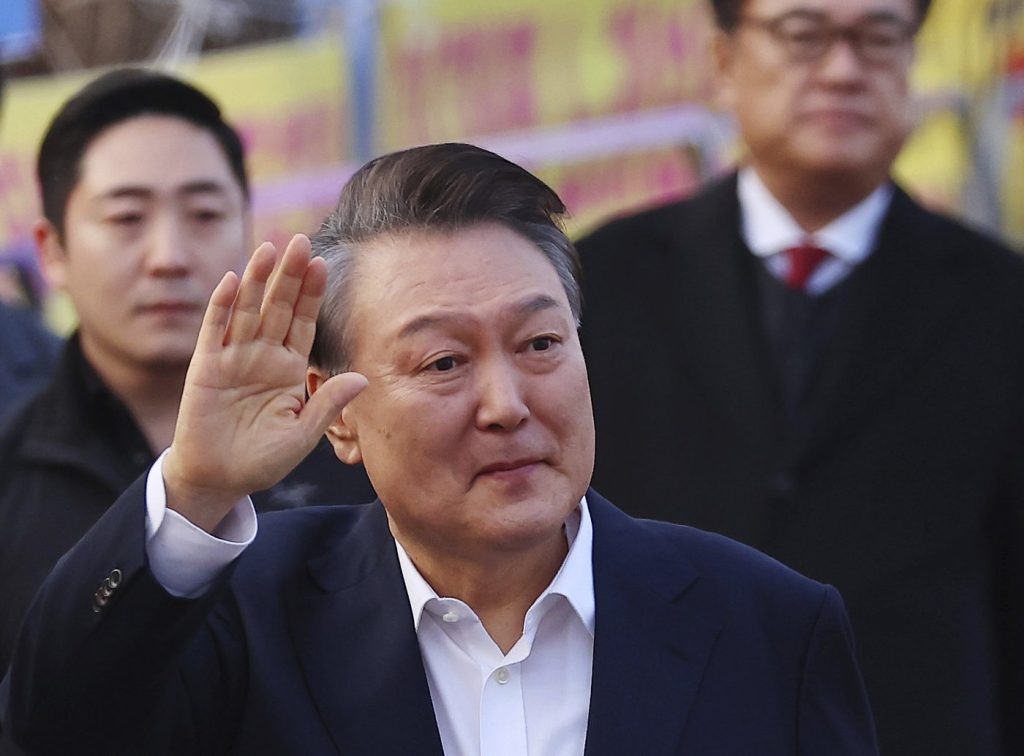SEOUL, South Korea (AP) South Korea's Constitutional Court is set to announce its decision on Friday regarding the impeachment of conservative President Yoon Suk Yeol. This ruling will significantly impact his political career, yet the controversy stemming from his brief imposition of martial law continues to echo throughout the nation.
In recent months, millions of South Koreans have taken to the streets to either support or protest against Yoon. Political tensions have escalated, manifested in rival politicians engaging in hunger strikes, shaving their heads, and filing numerous lawsuits against one another.
Regardless of the court's ruling, the existing divisions in South Korean society are expected to deepen. This will pose challenges for the country as it navigates relations with the United States under President Donald Trump's “America First” policy and addresses North Korea’s growing military ties with Russia. Public administration professor Hong Sung Gul predicts difficulties in achieving consensus, stating, “There is a high possibility that bigger chaos will follow.”
The Constitutional Court has held Yoon’s fate since his impeachment by the opposition-controlled National Assembly on December 14. Should the court rule against Yoon, he will be officially removed from office, triggering a national election to choose his successor within two months. Conversely, a ruling in favor of Yoon would permit him to immediately resume his presidential duties.
Central to the impeachment case is Yoon's decision to deploy hundreds of troops and police to the parliament following his martial law declaration. He asserts that the move was to maintain public order, while some military and police officials contest this, alleging he intended to disrupt a legislative vote on his decree.
The martial law was short-lived, lasting only six hours, as lawmakers managed to convene and disapprove of the decree before any violence or arrests occurred. Yoon claims the martial law declaration was meant to draw attention to the opposition Democratic Party, which he accuses of obstructing his agenda and impeaching his officials. The impeachment motion against him alleges violations of the Constitution and related laws through actions designed to suppress legislative activities, detain politicians, and disrupt national peace.
The outcome of Yoon's impeachment will likely provoke significant public reactions. A ruling against him could spark large-scale protests from his supporters, while reinstating him could incite renewed demonstrations from liberal activists that had subsided post-impeachment. Legal experts warn that rejecting the impeachment may raise serious concerns about the integrity of South Korea's political and democratic structures.
There is a consensus among scholars that an overturning of Yoon’s impeachment could set a concerning precedent wherein future leaders might attempt to impose martial law under similar circumstances. Yoon has indicated that if given another chance to govern, he would prioritize constitutional reforms aimed at enhancing governance and electoral processes, and would consider leaving office early in 2027.
Political commentator Kim Su-min cautions that even if Yoon returns to power, he may struggle to regain his previous authority and could face intensified pressure from the opposition.
Furthermore, Yoon is concurrently facing a separate criminal trial concerning allegations of rebellion tied to his martial law decree. If convicted, he could face severe penalties, including the death penalty or life imprisonment. Experts suggest that a ruling in favor of Yoon’s impeachment could bolster the chances of a conviction in his rebellion case, as it would imply that the martial law was serious enough to warrant dismissal. However, a rejection may also complicate the prosecution's case against him.
Yoon's unique position as a president provides him with immunity from most criminal prosecutions, which raises questions about the legitimacy of his criminal trial proceedings should the Constitutional Court lift his impeachment.










